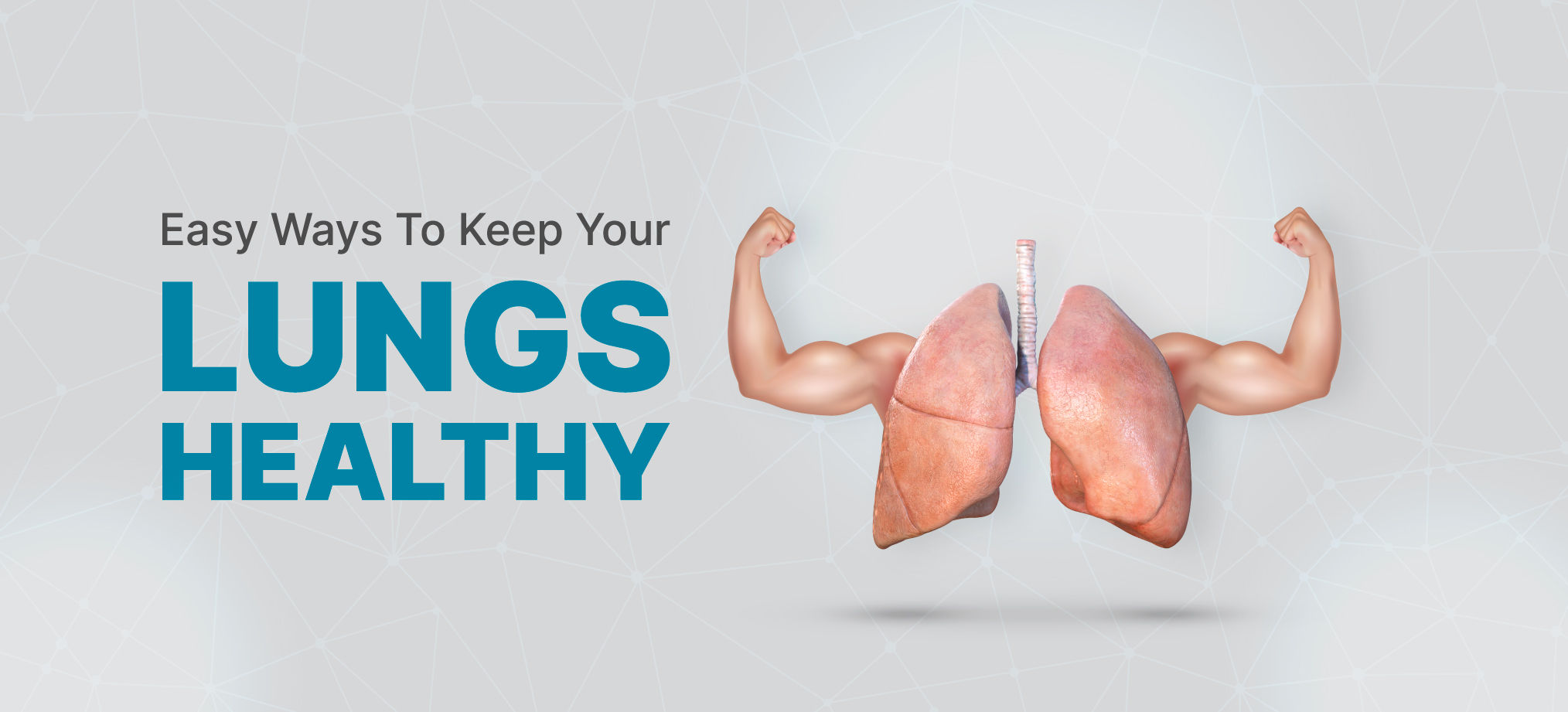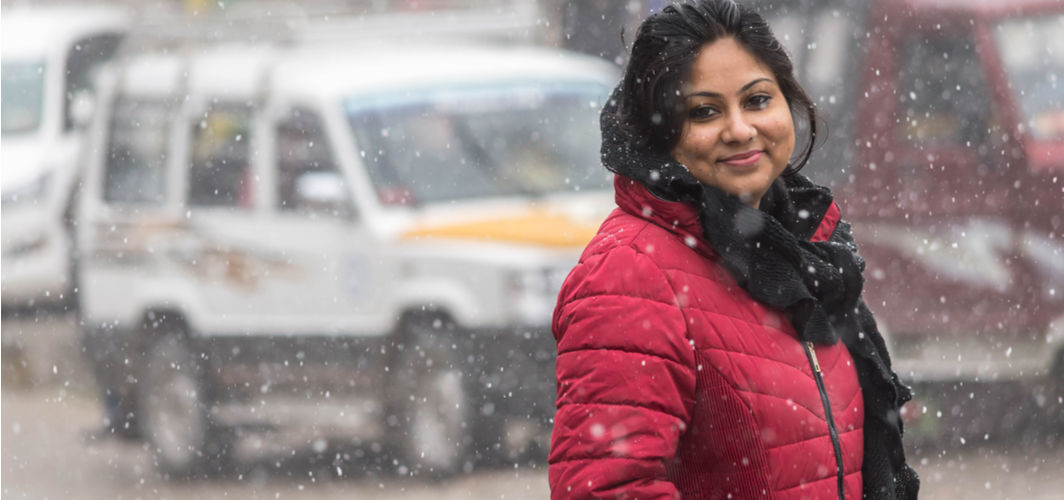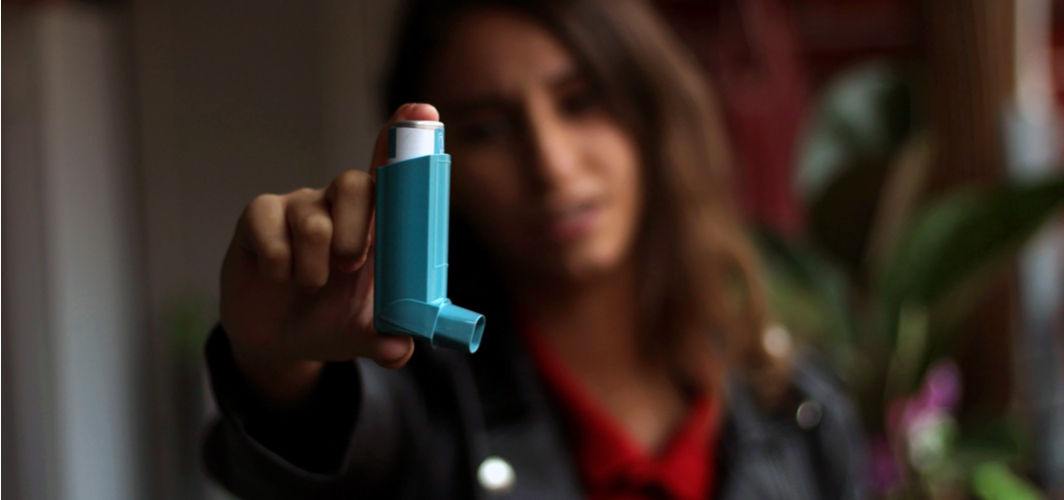Respiratory Health
Does Hot Weather Affect Your Breathing And Lungs?
4 min read
By Apollo 24/7, Published on - 10 April 2021, Updated on - 07 August 2024
Share this article
2
0 like

India is notorious for its scorching summer season. However, this year the intense heat wave seems to have shattered all previous records. The blistering heat is in fact making it a challenging time for those with respiratory illnesses such as Chronic Obstructive Pulmonary Disease (COPD) and asthma. The breathing problem in hot weather often triggers issues, with high heat and humidity leading to increased cases of asthma flare-ups and other respiratory problems. Various studies have confirmed the connection between hot weather and breathing difficulties, highlighting the prevalence of difficulty breathing in hot weather and shortness of breath in hot weather.
How does hot weather affect breathing?
From low-wind speeds to increased air pollution levels, hot weather can make it difficult to breathe properly. The body requires more oxygen to regulate internal temperature during extreme heat, impacting lung function and leading to deep or rapid breathing (hyperpnea). Scientific research has highlighted several ways hot weather affects breathing, including:
- Increased Pollen Count: During summer, pollen levels rise, triggering respiratory symptoms such as coughing, wheezing, and shortness of breath in people with asthma, allergic rhinitis, and COPD.
- Airway Irritation: A study published in the journal Respiratory Physiology & Neurobiology found that hot air induces airway irritation and cough in individuals with allergic rhinitis. This is due to the activation of thermal sensors on the nerves of the larynx and upper airways.
- Airway Inflammation and Bronchoconstriction: Research in the European Respiratory Journal revealed that breathing in hot air causes airway inflammation and bronchoconstriction, leading to shortness of breath.
- Pollutant Trapping: According to The Lancet, extremely high temperatures cause stagnant air, trapping pollutants like Particulate Matter 2.5 and ozone, which worsen respiratory symptoms.
- Dehydration: Hot weather increases sweating and can lead to dehydration, drying out the nasal passages, bronchial tubes, and lungs, resulting in shortness of breath.
- Humidity and Oxygen Levels: Hot air holds more water vapour, leading to higher humidity and lower oxygen content. This dense air can be difficult to breathe, especially for those with chronic lung problems, causing shortness of breath hot weather.
Recognising and Managing Breathing Problems in Hot Weather
Breathing problem in hot weather can be particularly challenging for individuals with existing respiratory conditions. Recognising the symptoms and understanding the triggers can help in managing these issues effectively.
Signs of Breathing Problems: Common symptoms include coughing, wheezing, chest tightness, and shortness of breath. Hot weather can exacerbate these symptoms, making it crucial to take preventive measures.
Triggers: High pollen counts, pollution, and extreme heat are significant triggers for breathing problems in hot weather. Monitoring these factors can help in planning activities to minimise exposure.
How to take care of the lungs during hot weather?
Taking care of your lungs during hot weather can be managed with some simple changes to your daily routine. Here are a few tips to help you manage difficulty breathing in hot weather and protect your lungs from the adverse effects of high temperatures:
1. Stay Indoors
Avoid stepping out unless necessary. Keep windows and doors closed to maintain a cool indoor environment.
2. Monitor Weather Conditions
Check the weather forecast, pollen counts, and air quality index (AQI) before going outside. High levels of pollen and particulate matter can combine with heat to induce coughing and wheezing, especially for those with respiratory illnesses. If you need to go out, wear a face mask to prevent inhaling pollutants and pollen.
3. Plan Accordingly
Avoid going out during the warmest part of the day, typically between 11 am and 3 pm. Schedule activities for early morning or evening when the air is cooler.
4. Adopt a Healthy Lifestyle
Quit smoking to improve lung function and avoid alcohol as it can dehydrate the body, exacerbating breathing problem in hot weather.
5. Wear Appropriate Clothing
Opt for loose, light-coloured cotton clothing during the summer to stay cool.
6. Avoid Overexertion
Refrain from strenuous activities like running, cycling, or hiking with a heavy backpack to prevent shortness of breath hot weather.
7. Hydrate and Eat Well
Drink plenty of water and consume foods with high water content such as watermelon, muskmelon, mango, and cucumbers to stay hydrated.
8. Keep Cool
Take frequent showers if you feel overheated. Use a shrug, hat, scarf, or umbrella when outdoors to protect yourself from the sun.
9. Be Prepared for Emergencies
Keep quick-relief medications for breathing problems handy in case of a respiratory emergency.
Takeaway
Hot weather can affect everyone, but people with pre-existing lung conditions are at increased risk for adverse effects and health issues. The breathing problem in hot weather can exacerbate these conditions, leading to significant discomfort. Therefore, such individuals must keep themselves properly hydrated by drinking lots of water and avoid getting exposed to hot weather. If you experience difficulty breathing in hot weather, or notice shortness of breath in hot weather, it is crucial to take preventive measures. People suffering from respiratory illnesses should contact their doctor if they experience an exacerbation of their symptoms, as shortness of breath hot weather can be particularly dangerous.
For any questions on lungs and breathing, you can:
Consult a Pulmonologist
Respiratory Health
Frequently Asked Questions
Can hot weather cause shortness of breath?
Can hot weather cause shortness of breath?
Is hot air bad for your lungs?
Is hot air bad for your lungs?
Is shortness of breath a symptom of heat exhaustion?
Is shortness of breath a symptom of heat exhaustion?
Can heat cause chest tightness?
Can heat cause chest tightness?
What is the best position to sleep in to clear your lungs?
What is the best position to sleep in to clear your lungs?
Leave Comment
Recommended for you

Respiratory Health
Belly Breathing To Rib Stretches: 5 Exercises To Improve Lung Function
Some exercises like belly breathing, rib stretches and humming can improve your lung function and prevent them from getting affected by diseases and pollutants.

Respiratory Health
Improve Your Respiratory Health This Winter
People with pre-existing respiratory conditions such as asthma and COPD witness exacerbation of their conditions as the cold temperatures may make it difficult to breathe comfortably.

Respiratory Health
Reasons You Must Quit Using Tobacco
Every year, 31st May is observed as ‘World No Tobacco Day' to increase awareness about the health hazards associated with the use of tobacco.
Subscribe
Sign up for our free Health Library Daily Newsletter
Get doctor-approved health tips, news, and more.
Visual Stories

Can Asthma Symptoms Get Worse Indoors?
Tap to continue exploring
Recommended for you

Respiratory Health
Belly Breathing To Rib Stretches: 5 Exercises To Improve Lung Function
Some exercises like belly breathing, rib stretches and humming can improve your lung function and prevent them from getting affected by diseases and pollutants.

Respiratory Health
Improve Your Respiratory Health This Winter
People with pre-existing respiratory conditions such as asthma and COPD witness exacerbation of their conditions as the cold temperatures may make it difficult to breathe comfortably.

Respiratory Health
Reasons You Must Quit Using Tobacco
Every year, 31st May is observed as ‘World No Tobacco Day' to increase awareness about the health hazards associated with the use of tobacco.